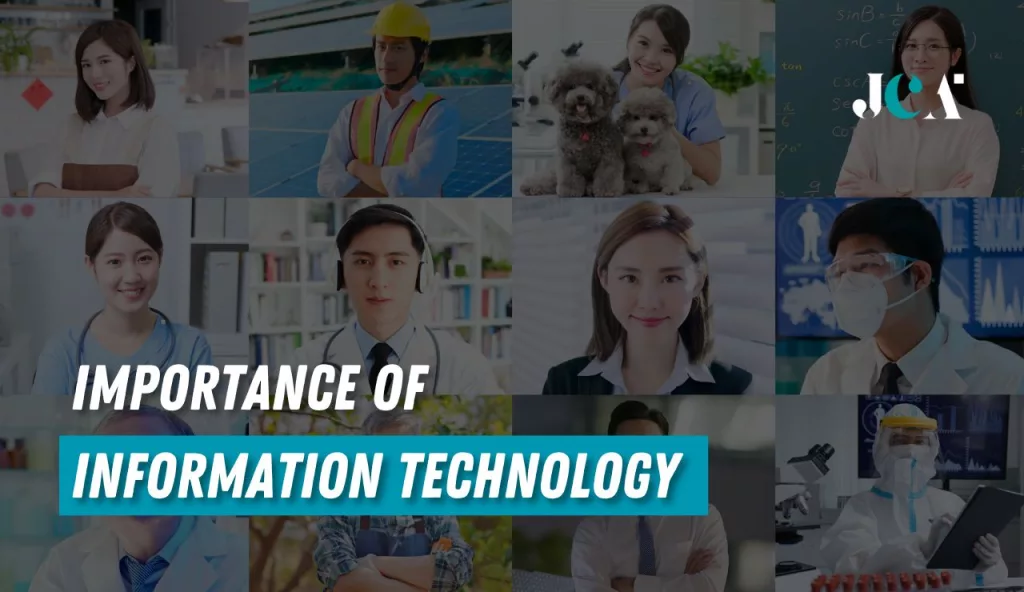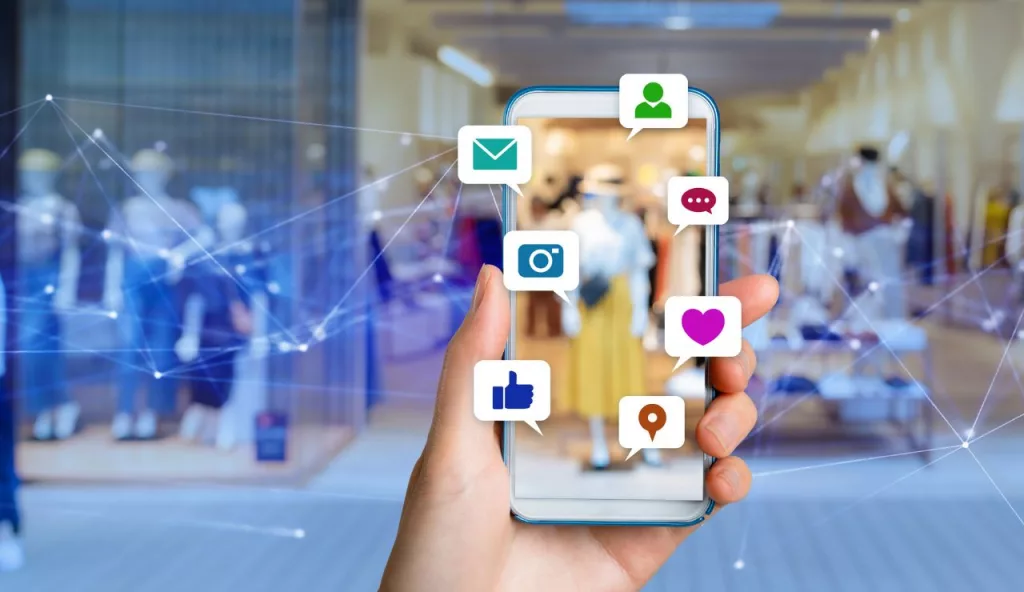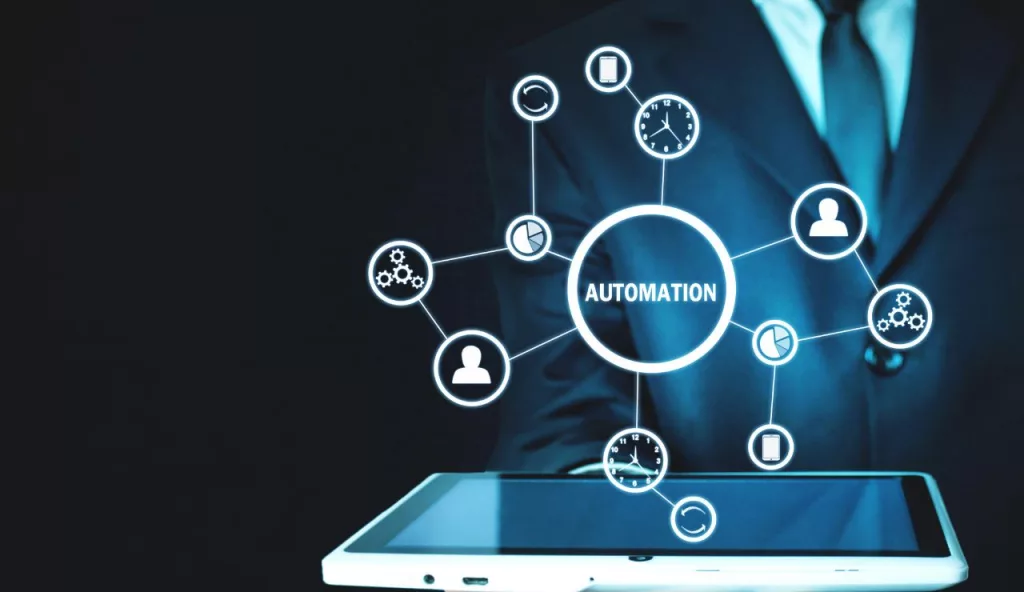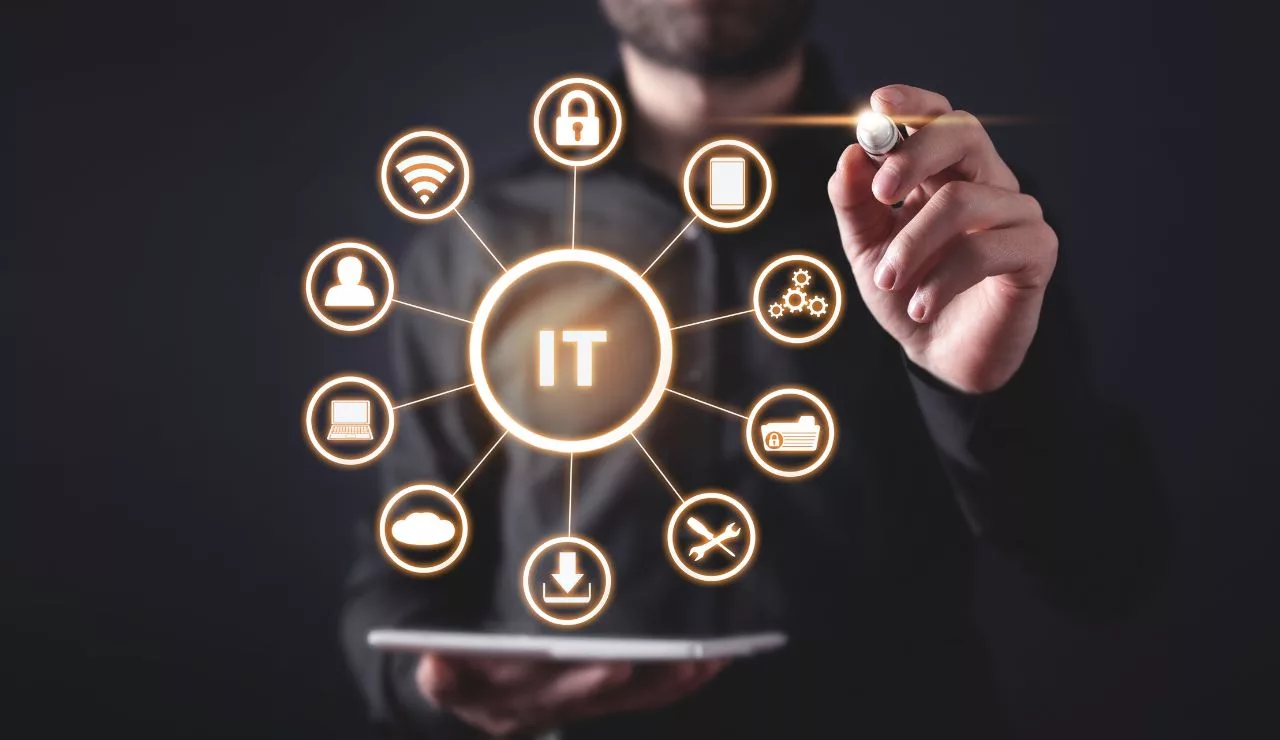Everyone is asking “what is the importance of information technology in this modern era?” In the current digital era, Information Technology (IT) stands as a pivotal force driving our world. As the backbone of almost every aspect of human life, from communication to healthcare, it’s hard to imagine a world without IT. The significance of IT can’t be overstated, as it plays a cardinal role in shaping our society and fostering global progress.

Also read: Importance of Information Technology in Modern Era
- Introduction to Information Technology (IT)
- Importance of Information Technology in This Era
- Importance of IT in Everyday Life
- Importance of IT in Business
- Importance of Information Technology in Healthcare
- The Importance of Information Technology and Globalization
- Challenges and Future Prospects of IT
- Conclusion
- Frequently Asked Questions
Introduction to Information Technology (IT)
Information technology, often referred to as IT, is the use of computers, networks, storage, and other physical devices, infrastructure and processes to create, process, store, secure, and exchange all forms of electronic data. This umbrella term not only includes hardware and software, but also services and systems that enable data management.
What is Information Technology?
Information technology can be defined as the application of technology to solve business or organizational problems on a broad scale. No matter the role, a member of an IT department works with others to solve technology problems, both big and small. The evolution of IT has been a riveting journey, from the massive room-filling computers of the 1960s to the pocket-sized smartphones of today.
Pervasive Role of IT in Today’s World
In today’s world, IT is everywhere. It’s in the phones we use, the cars we drive, and the appliances in our homes. It’s used in entertainment, education, healthcare, and so much more. IT has become an integral part of our daily lives, reshaping the way we live, work, and interact with the world around us.
You may also ike to read Must-Have Technology Solutions for Businesses.
Importance of Information Technology in This Era
- Global Connectivity: With the advent of Information Technology (IT), the world has become a global village. People can communicate and collaborate across the globe instantly, sharing ideas and information, and fostering international relations.
- Efficient Business Operations: IT has revolutionized business operations, making them more efficient and scalable. From data management to automation of tasks, IT helps businesses achieve their objectives more effectively and efficiently.
- Real-time Information Access: IT has facilitated instant access to information, enhancing decision-making processes in both personal and professional spheres. This timely access to data can be pivotal in various sectors like finance, healthcare, and emergency services.
- Improved Learning and Education: IT has transformed the education sector. Online learning, educational software, and digital libraries make knowledge accessible to everyone, regardless of their location.
- Healthcare Advancements: IT plays a crucial role in healthcare advancements. Electronic health records, telemedicine, and medical research are all made possible through IT, leading to improved patient care and outcomes.
- Data Analysis and Decision Making: Through advanced data analytics, IT helps organizations make informed decisions by processing complex data sets to uncover patterns and insights that would otherwise be challenging to discern.
- Enhanced Security: IT enables robust security measures for data protection. Encryption, firewalls, and antivirus software protect sensitive information from cyber threats, ensuring the safety of personal and corporate data.
- Environmental Benefits: IT solutions can help reduce carbon footprints through virtual meetings and remote work, minimizing travel, and hence, reducing fuel consumption and emissions.
- Economic Growth: IT is a significant driver of economic growth. It creates jobs, fosters innovation, and enhances productivity across various sectors, contributing to the overall economy.
- Innovation and Creativity: IT is a catalyst for innovation and creativity. It has given birth to new industries, and it continually transforms existing ones, promoting a culture of innovation.
- Enhanced Communication: IT has revolutionized communication, making it faster and more efficient. Email, social media, video conferencing, and instant messaging have changed the way we interact and collaborate.
- Disaster Management: IT plays a vital role in disaster management. From predictive modeling to manage disasters to efficient communication during emergencies, IT is instrumental in saving lives and minimizing damage.
- E-Governance: IT has enabled governments to provide services more efficiently, enhancing transparency and accountability. Online tax filing, virtual court proceedings, and digital identity systems are just a few examples of IT in governance.
- Increased Accessibility: With assistive technology and digital platforms, IT has increased accessibility for people with disabilities, providing them with tools and resources to lead more independent lives.
- Promotion of Equality: IT helps promote equality by providing equal access to information and opportunities. Regardless of location, economic status, or education, anyone with internet access can learn, work, and contribute to society.
Importance of IT in Everyday Life
In our day-to-day life, the influence of IT is monumental. It is instrumental in revolutionizing various sectors and making life more comfortable and efficient.
Digital Communication

Digital communication has completely transformed the way we connect with others. Through email, social media, and instant messaging, we can interact with people across the globe in real time. IT has made it possible to share ideas, collaborate on projects, and maintain personal relationships, regardless of physical distance.
E-commerce and Online Transactions
IT has also revolutionized shopping and commerce. E-commerce platforms have made it possible to browse, select, and purchase products from the comfort of our homes. Online transactions, facilitated by secure payment systems, have made commerce quick, convenient, and safe.
IT in Education and E-learning
In the field of education, IT has enabled e-learning, opening the doors to knowledge for everyone, regardless of geographical location. It has made education more interactive, engaging, and accessible, significantly transforming the learning experience.
Importance of IT in Business
Information Technology (IT) has become a cornerstone in the business world, driving efficiency, innovation, and growth. The rapid digital transformation in businesses across the globe is a testament to the significant role IT plays in today’s commercial landscape.
Business Process Automation

Business process automation is one of the most significant benefits IT brings to businesses. Through automation, businesses can streamline their operations, eliminating manual, time-consuming tasks, and reducing the chances of human error.
According to a report by McKinsey, automation can boost business productivity by 20-25%. This efficiency not only saves time but also leads to substantial cost savings. By optimizing workflows, businesses can focus on their core competencies, leading to better output and performance. As Bill Gates once said, “The first rule of any technology used in a business is that automation applied to an efficient operation will magnify the efficiency.”
Customer Relationship Management (CRM)
In the realm of customer service, IT has made significant strides through Customer Relationship Management (CRM) systems. These platforms allow businesses to collect, analyze, and utilize customer data more effectively. They enable businesses to track customer interactions, preferences, and feedback, providing valuable insights to tailor their offerings and improve customer satisfaction.
According to a study by Salesforce, CRM applications can help increase sales by up to 29%, sales productivity by up to 34%, and sales forecast accuracy by 42%. In essence, CRM systems help businesses understand their customers better, fostering stronger relationships and enhancing customer loyalty.
Data Analysis and Decision Making
Data is the new gold in the business world, and IT is the key to unlocking its potential. The Data analysis tools offered by IT enable businesses to process and analyze large volumes of data to derive valuable insights. These insights aid in making informed business decisions, strategic planning, and predicting market trends.
As the famous quote by W. Edwards Deming goes, “Without data, you’re just another person with an opinion.” In a survey by Forbes, 66% of businesses reported that data-driven strategies significantly improved their decision-making processes. In a nutshell, IT empowers businesses to transform raw data into actionable intelligence, driving growth and competitive advantage.
Also have a look at The Birth Of The New Manufacturing Industry 4.0 – Automation AI And Robotics.
Importance of Information Technology in Healthcare
Information Technology (IT) is revolutionizing healthcare, making it more efficient, accessible, and patient-centered. From electronic health records to telemedicine, IT is transforming the way healthcare services are delivered and managed.

Electronic Health Records
Electronic Health Records (EHR) are a stellar example of IT’s impact on healthcare. EHR systems digitize patient data, making it easily accessible and shareable among healthcare professionals. This drastically improves coordination of care, reduces the chances of medical errors, and enhances patient safety.
According to a report by HealthIT.gov, the use of EHRs can lead to a 65% improvement in the quality of care delivered. Moreover, they help streamline administrative tasks, leading to significant time and cost savings. As Dr. David Blumenthal, the National Coordinator for Health Information Technology, puts it, “The electronic health record is the central component of health IT infrastructure. It’s a comprehensive record of a patient’s health history, treatment, and care.” In essence, EHRs are transforming healthcare into a more efficient and patient-centered service.
Telemedicine and Remote Care
Another transformative application of IT in healthcare is telemedicine. Telemedicine enables remote patient care, allowing individuals to consult healthcare professionals from the comfort of their homes. This is particularly beneficial for patients living in remote areas with limited access to healthcare facilities.
According to the American Hospital Association, 76% of U.S. hospitals connect with patients and consulting practitioners at a distance through the use of video and other technology. Telemedicine not only makes healthcare more accessible but also reduces the burden on healthcare facilities and helps contain the spread of infectious diseases. As the World Health Organization notes, “Telemedicine can bring the eyes of a specialist to examine a patient or medical record from miles away.” Overall, IT is significantly expanding the reach and effectiveness of healthcare services, making quality healthcare a reality for more people.
You may also like reading Best Healthcare Software Development Companies.
The Importance of Information Technology and Globalization
Information Technology (IT) has been a game-changer in the realm of globalization, fostering interconnectedness and mutual understanding across the globe. It is breaking down geographic boundaries and promoting cultural exchange like never before.
Breaking Geographic Boundaries
The advent of IT has significantly blurred geographic boundaries, enabling people to connect, collaborate, and work from virtually anywhere. It’s not just about communicating with friends and family across borders; businesses can now tap into global markets and talent pools, revolutionizing the way we work.
A study by Global Workplace Analytics shows that remote work has increased by 173% since 2005, much of it attributable to advancements in IT. As Thomas Friedman, the author of “The World is Flat,” noted, “The Internet is the most powerful and pervasive platform on the planet. It’s a tool for bringing together the far corners of the globe.” Indeed, IT is redefining what it means to be “present” and making the world a smaller place.
Promoting Cultural Exchange
Moreover, IT plays a crucial role in promoting cultural exchange. Through social media platforms, online forums, and digital content, people can share and learn about diverse cultures, traditions, and perspectives. It’s not uncommon for someone in one part of the world to enjoy music, films, or art from another continent, fostering a sense of global unity and mutual respect.
According to a report by the United Nations, internet users are increasingly consuming content in languages other than English, reflecting the growth of multicultural online communities. As Internet Society states, “The internet is the world’s largest library, containing information on nearly every subject and viewpoint.” This cultural exchange facilitated by IT not only enriches our understanding of the world but also promotes tolerance and peace.
Challenges and Future Prospects of IT
The world of Information Technology (IT) is not without its challenges, particularly in terms of security and privacy. However, the future prospects of IT are undeniably exciting, promising a new era of innovation and interconnectedness.
Security and Privacy Issues
One of the most pressing concerns in the IT domain is the issue of security and privacy. With the exponential growth of digital data, safeguarding sensitive information has become a paramount concern.
According to a report by Cybersecurity Ventures, the global cost of cybercrime is expected to hit $6 trillion annually by 2021. As cyberattacks become more sophisticated, businesses and individuals alike must prioritize cybersecurity measures to protect their digital assets. As Robert Mueller, former Director of the FBI, famously said, “There are only two types of companies: those that have been hacked, and those that will be.” Additionally, the issue of privacy is gaining prominence, as data collection practices come under scrutiny. Ensuring privacy while leveraging data for innovation poses a significant challenge for the IT sector.
Future Trends in IT
Despite these challenges, the future of IT is filled with exciting prospects. Here are some key trends to look out for:
- Artificial Intelligence (AI): AI continues to be a significant trend in IT, with advancements in machine learning and automation driving innovation in various sectors.
- Internet of Things (IoT): IoT is set to revolutionize our interaction with the physical world. From smart homes to connected cars, IoT will make our surroundings more responsive and efficient.
- Quantum Computing: Quantum computing promises to bring about a new era in data processing, with the potential to solve complex problems that are currently beyond the reach of classical computers.
- Blockchain Technology: Originally developed for cryptocurrency transactions, blockchain technology is now being explored for various applications, including supply chain management and secure data sharing.
- Edge Computing: As IoT devices multiply, edge computing—which involves processing data closer to the source rather than relying on a centralized cloud-based system—will become increasingly important.
As we look towards the future, we can expect IT to continue pushing the boundaries of innovation, transforming our lives in ways we can only begin to imagine.
Conclusion
In conclusion, Information Technology is an integral part of our lives, profoundly impacting various sectors. Despite the challenges it poses, the benefits and prospects of IT are immense. As we move forward, we can expect IT to continue driving innovation and progress, shaping a future where technology and human life are inextricably intertwined.
Frequently Asked Questions
IT plays a significant role in our daily lives. It enables digital communication, e-commerce, online transactions, and e-learning, making our lives more comfortable and efficient.
Information Technology (IT) is the backbone of modern society, playing a crucial role in almost every aspect of our lives. From enabling digital communication and e-commerce to revolutionizing healthcare and education, IT has significantly enhanced efficiency, accessibility, and convenience in various sectors. Moreover, IT is driving business innovation, facilitating data-driven decision making, and opening up global opportunities.
IT impacts our everyday lives in countless ways. We rely on IT for digital communication, online shopping, banking transactions, and access to information. Moreover, through e-learning platforms, IT is making education more accessible and flexible. IT also improves our quality of life through smart home technologies, navigation tools, and digital entertainment.
IT is revolutionizing the business landscape by optimizing business processes, enhancing customer relationship management, and enabling effective data analysis. IT tools and applications help streamline operations, improve productivity, and reduce costs. Additionally, IT facilitates better customer understanding and engagement, leading to improved customer service and loyalty.
IT plays a significant role in healthcare, improving efficiency, accessibility, and patient care. Electronic Health Records (EHRs) enable better management and sharing of patient data, enhancing coordination of care and patient safety. Telemedicine, another application of IT, allows for remote patient consultations, expanding the reach of healthcare services.
IT is a key driver of globalization, breaking down geographical boundaries and promoting cultural exchange. IT enables people to connect, collaborate, and work from anywhere, fostering global interconnectedness. Moreover, through digital platforms, IT facilitates the sharing and understanding of diverse cultures, promoting global unity.
Despite its numerous benefits, IT also presents challenges, particularly regarding security and privacy. With the increasing reliance on digital data, protecting sensitive information from cyber threats is a significant concern. Additionally, balancing the use of data for innovation while respecting privacy rights poses a considerable challenge.
Preparation for the future of IT involves continuous learning and adaptability. As technology evolves, acquiring new IT skills and staying abreast of IT trends is crucial. Additionally, prioritizing cybersecurity measures and ethical data practices will be increasingly important as we move towards a more digital future.










Leave a Reply